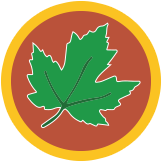Online (E-Safety) Safety
Top tips for keeping our child safe online ( based on NSPCC guidelines).
1. Don’t ban the internet completely – teach them how to use it.
2. Have the conversation early – children spend more time on tablets and gadgets than watching TV (12 hours a week). Talk all the time.
3. Explore the web together – get them to show you what they are doing.
4. Set rules and agree on boundaries:
- the amount of time they can spend online
- when they can go online
- the websites they can visit or activities they can take part in
- sharing images and videos
- how to treat people online and not post anything they wouldn’t say face to face
5. If your child plays online games:
- make sure you know who they’re playing with
- talk to them about what information is OK to share with other players
- negotiate the amount of time they spend playing online games
6. Check the content is age-appropriate (little siblings can’t watch Grand Theft Auto) Like films, games have age-related ratings
7. Use parental controls to filter or restrict content
- settings on your iPad/tablet/phone
- all consoles etc. can be set with parental controls
8. Check your children know how to use privacy settings and what to do if something happens
- Check the privacy settings on any online accounts your child has, like Facebook or games, and remind them to keep their personal information private
- “and talk to your child about what to do if they see content or are contacted by someone that worries or upsets them. Make sure they know how to use tools to report abuse.”
The NSPCC have a guide to all the different apps and sites your children might use.
HCC e-safety guide for parents
Mind the Gap Conversation Starter Kit
Online safety tips for parents of primary school children 6-10-Year-Olds



























